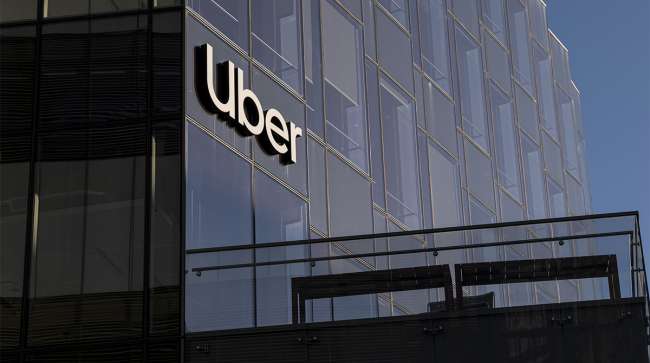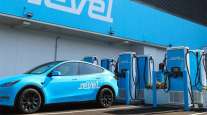Uber Invests in Self-Driving Software Firm Wayve

[Stay on top of transportation news: Get TTNews in your inbox.]
Uber Technologies is making a strategic investment in U.K.-based autonomous driving software provider Wayve Technologies, adding to a slew of partnerships the rideshare company has struck in a bid to position itself as a platform for commercializing autonomous vehicles.
Uber declined to disclose the size of the investment, which it said was small enough that it wasn’t required to publicly report it. The funding is an extension of a $1.05 billion Series C round in May that was led by SoftBank Group Corp. with participation from Nvidia Corp. and Microsoft Corp. With Uber’s funding and support, Wayve intends to “accelerate its work” with global auto manufacturers to equip consumer vehicles with its assisted and automated driving technologies, the companies said a joint statement.
The firms also agreed to put self-driving vehicles powered by Wayve’s software on the Uber platform in multiple markets around the world, without detailing a launch timeline.
The announcement follows a string of recent autonomous vehicle-related partnerships from Uber, which fashions itself as what CEO Dara Khosrowshahi has called an “indispensable partner for AV players of all sorts.” The executive rhetoric and high-profile collaborations may offer some relief to investors who have voiced concerns over Uber’s prospects in this space following Tesla Inc.’s announcement of a robotaxi unveiling in October.
Uber isn’t developing its own self-driving tech — a costly endeavor that it explored previously and spent $1 billion on before ultimately choosing to divest. Instead, it’s shifting to a more cost-effective strategy of working with manufacturers to offer their self-driving cars to its ride-hailing customers.
This arrangement will minimize additional overhead investment for carmakers and fleet owners as Uber will help manage “the daily and weekly peaks and valleys of ridehail activity,” Khosrowshahi said earlier this month. That includes matching riders to cars, shortening wait times and handling lost items.
🚨🤝Excited to partner with @Uber to accelerate automated driving.
Together, we are teaming up with automakers to integrate our Embodied AI technology into consumer vehicles. 🚘 Our mapless, end-to-end driving AI will support the needs of automakers in any location, delivering a… pic.twitter.com/LPIY7fEjDz — Wayve (@wayve_ai) August 29, 2024
Last week, Uber said it will begin offering Cruise’s self-driving cars early next year on its rideshare platform in a single market in the U.S. And in July, it touted Chinese electric vehicle maker BYD Co.’s automated driving technology and said the two companies are well placed to team up in scaling it.
Uber sold its self-driving research unit to startup Aurora Innovation in 2020, but the rideshare company has retained a minority stake of about $900 million to fund the development of fully autonomous freight trucks, which Uber expects to launch later this year. It’s also working with self-driving carmakers like Alphabet Inc.’s Waymo to launch its driverless taxi service in Phoenix.
Want more news? Listen to today's daily briefing below or go here for more info:




